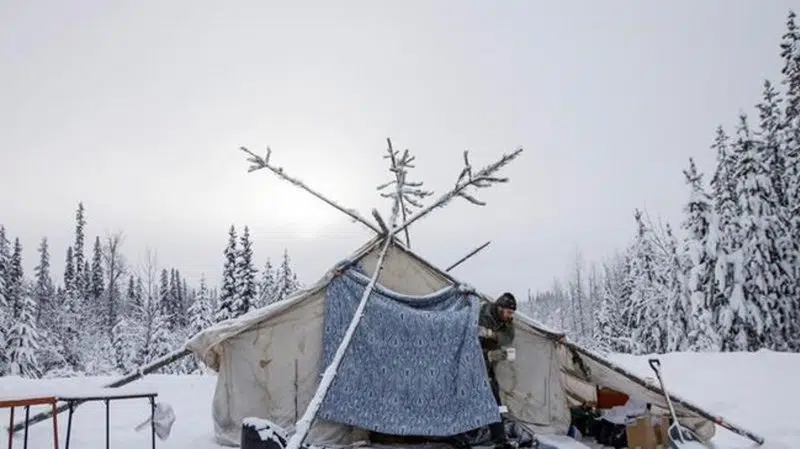
First Nation waits on logging road at centre of pipeline dispute in northern B.C.
HOUSTON, B.C. — About a dozen supporters of the Wet’suwet’en hereditary clan chiefs arrived to help set up a new camp on the side of a snowy logging road that’s at the centre of a disputed pipeline route in northern British Columbia on Thursday.
They brought with them new supplies, including two-by-fours and wood pallets, and began work erecting a second canvas tent on the site just outside the first of dozens of trees that have been felled across the road leading to a natural gas work site.
Coastal GasLink has provincial approval to build a 670-kilometre pipeline from northeastern British Columbia to LNG Canada’s $40-billion export terminal in Kitimat, but the chiefs say they won’t allow anyone on the First Nation’s traditional territory without their consent.
Cody Merriman, who is ‘Namgis and also goes by the name Mona’gila, said the supporters are there to ensure an eviction notice issued by the chiefs to Coastal GasLink over the pipeline it is building is respected.
